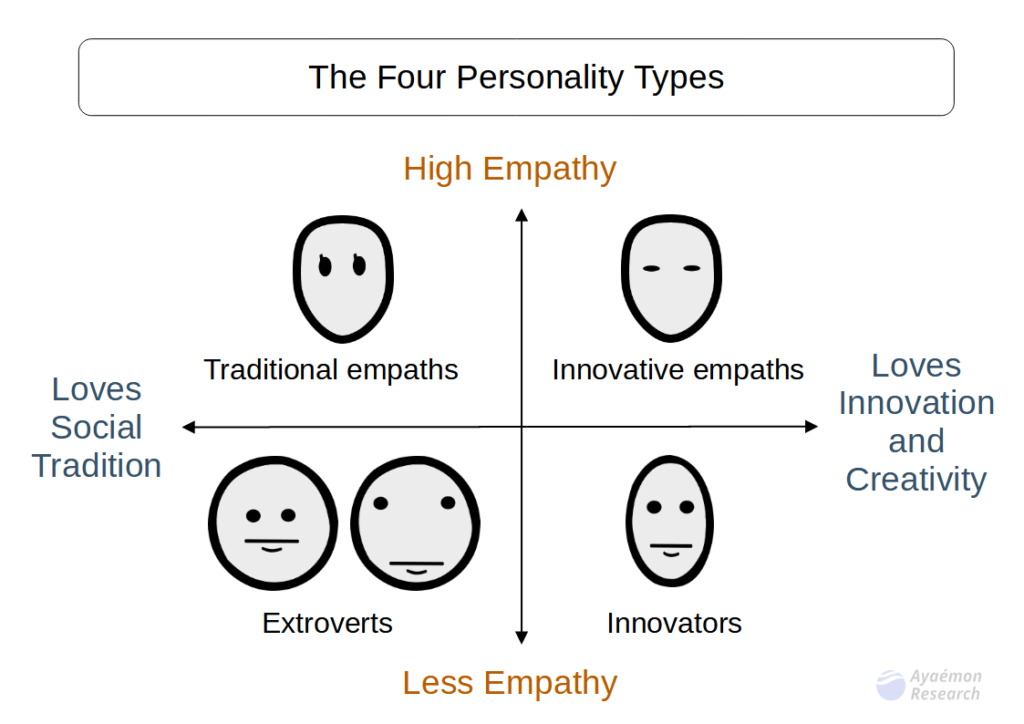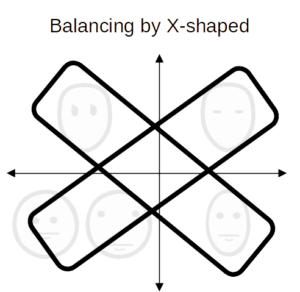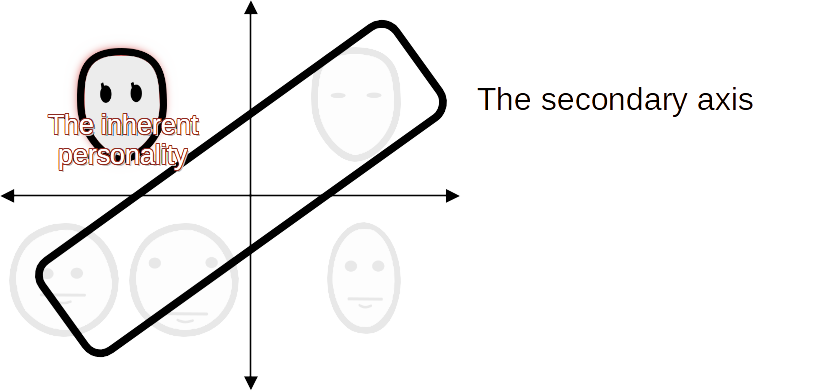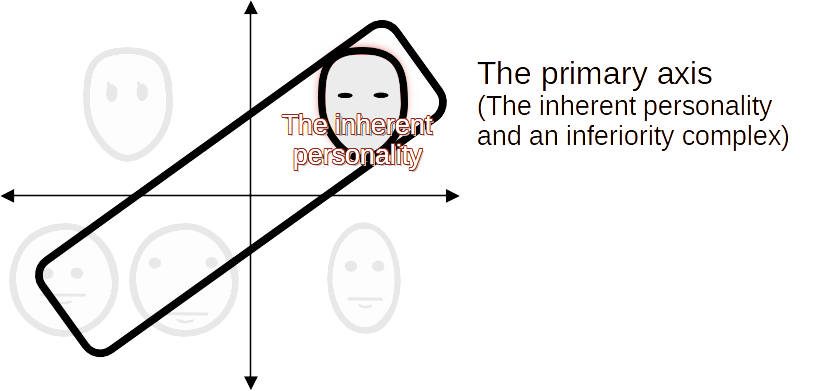Recently, I have talked about a way to balance our minds with the new mental framework, the Cross-Judging method. Today, I will explain another perspective to ease our too-strong empathy. This perspective will give us a safe treatment for ourselves.
How to ease our too-strong empathic sense safely
Sometimes, we want to ease our too-strong empathic sense. It is because it causes many mental troubles, such as uncontrollable fear of the changing future, vague boundaries between self and others, being influenced by the negative emotions of surroundings, or accusing ourselves of past failure as flashbacks. Those mental problems exhaust us.
However, we often don’t know how to deal with those problems. Although there are many methods to deal with them, they don’t work for us, especially if we have minor personalities. Sometimes, they stimulate our inferiority complex.

That is why I wanted a mental therapy method based on mental logic for a minority, like us.
A mental solution by the Cross-Judging method
The new mental framework I call the Cross-Judging method might work in that case. It provides us with ways to balance our biased minds. At least, it worked well for me.
I introduced a way to ease our too-strong empathic sense in the previous article (this article). It was for highly empathic, innovative, and creative people.

Today, I will introduce another way to solve the problem for another type of empathic people. This perspective will give us a whole picture of the Cross-Judging method and how to apply it safely.
The four types of personalities
To explain it, I will introduce the four types of personalities that I always use. It is as follows:

There are four types of personalities, as follows:
- Extroverts: The personality that prefers belonging and competition. They follow social values and compete to gain more material abundance. They avoid their responsibilities and make society responsible by following society. That frees them from fear of failure at the cost of killing their judgment.
- Traditional empaths: The personality that prefers belonging with empathy. Their social values restrict their empathy because they don’t care about logic. That makes them avoid empathizing with all the misfortunes of their surroundings and securing their mental comfort at the cost of killing their judgment.
- Innovative empaths: The personality that prefers empathy and individuality. They determine which weak people to help based on their judgment. These attitudes provide traditional empaths with a fresh, enjoyable sense of empathy and a new community to belong to.
- Innovators: (Not in use this time.)
We have those personalities inside us as well.
The Cross-Judging method for traditional empaths
The Cross-Judging method is a way to balance the values in our minds. We balance them by two axes, which are X-shaped, as follows:

- The primary axis: The axis that connects our inherent personality with an inferiority complex. This axis determines how much we can live naturally.
- The secondary axis: The other axis that connects the rest of the personalities. Balancing this axis solves our boredom and creates enthusiasm.
The case of traditional empaths
To make it easier, assume we are traditional empaths.
In the case of traditional empaths, the primary axis is the axis connecting traditional empaths and innovators, as shown in the following figure:

In other words, traditional empaths tend to have an inferiority complex with innovators, those who have creativity and influence on their society. The balance of this primary axis brings them the comfort of living as they are.
The secondary axis is the axis between innovative empaths and extroverts, as shown in the following figure:

The balance of this axis creates boredom or enthusiasm for activities. They feel familiar with both of them.
The logic of empathy for traditional empaths
Perhaps the traditional empaths who like this blog tend to be the innovative-empaths-biased traditional empath type. It means they are biased toward innovative empaths and disregard extroverts on the secondary axis.
Innovative empaths often tell us the new, efficient ways or senses to use empathy. They bring us new opportunities to feel happiness.
However, if we are too sensitive to empathy, that causes many mental problems related to empathy. We might feel, “I have to learn more because there should be a new way to solve my problem,” “I have to deal with it myself,” or “I have to take responsibility to improve my life.” In other words, we tend to forget to blame our communities.

That makes traditional empaths lose their comfort, keep trying to do something special, and end up with fruitless efforts.
In such a situation, stimulating the personality of extroverts would ease our empathic sense. By blaming the community, we can give our empathy a rest at the expense of giving up changing the environment.
A distinction of which way is safe and effective
This perspective provides another type of empathic people, innovative empaths, with a safe and effective way to treat our empathy.
If we are innovative empaths, we will find the above way unacceptable because it goes against our lifestyle. The personality of extroverts is an inferiority complex for innovative empaths, as shown in the following image. Stimulating it means accelerating the inferiority complex.

For example, blaming the community means killing our individuality and being a victim of society. In addition, we give up the opportunity to change our environment. It will cause more suffering for innovative empaths in the long term.
That is why we have to choose the way based on the theory of our personalities. Traditional empaths are the majority of empathic people. Innovative empaths are the minority. If we are innovative empaths, many mental methods don’t suit us.
The Cross-Judging method allows us to distinguish what way is safe and effective for us.

For innovative empaths, taking more responsibility allows us to migrate to a new world. In addition, we can let go of the attitude of being victims. Being a social victim is an effective way for another type of empath. That will bring us distinction and a good mental balance.
Conclusion
The above is another perspective based on traditional empaths.
Stimulating disregarded personality on the secondary axis will give us a balance to ease our too-strong empathy.
This mental framework might allow us to apply an efficient method safely.
Thank you for reading this article. I hope to see you in the next one.


